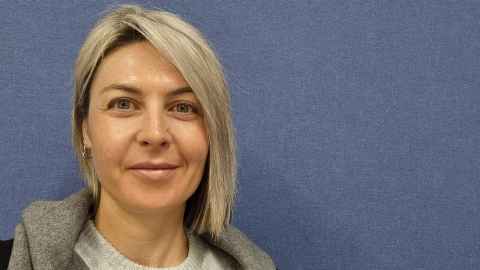Shea Bowden
Shea Bowden is deputy principal at Manurewa West School. She won a 2022 National Excellence in Teaching Award (NEiTA) for her work in equity through mathematics and more culturally responsive assessment.

At the 2022 National Excellence in Teaching Awards, Shea Bowden (Pākehā) won one of four annual “Apples”, which recognise “outstanding teachers who’ve gone above and beyond for their students”.
“I did have a ‘moment',” admits Shea, about her win. “I thought, ‘Wow, what do I do from here?’ To be recognised like that for my work around equity was monumental – very emotional – and gave me a real sense of satisfaction.”
In 2018, before Shea led a whole-of-school shift in mathematics teaching, student achievement at Manurewa West was at 42 percent across Years 1 to 6, meaning most students were performing below their expected level in maths. Shea’s changes included introducing “real-world” maths problems – so students were adding and multiplying specific objects familiar to them, such as glowsticks at the school disco or – during Samoan language week – flowers on a siapo (tapa) pattern. “The children can visualise that for a start, so they know what you’re trying to ask them,” explains Shea.
She also implemented mixed-ability class groupings – no streaming – so the kids could teach each other. And probably the biggest shift was one of classroom mindset: ensuring that – in order to achieve – “the kids have got the confidence to fail,” as Shea told RNZ.
“It’s one thing for a child to feel safe when they walk in through the school gate, and know they’ll be looked after, but it’s a different type of ‘safe’ in the classroom, where they know they can take risks and it’s ok if they fail,” she says.
And the results? Magnificent. By 2021, student achievement had nearly doubled, to 79 percent; and by 2023, it had increased to 85 percent.
Shea joined Manurewa West School as a teacher in 2012, and she is proud of its students. Just over four of every ten children are Māori, with Pacific numbers about the same – and English is an additional language for many.
“The deficit thinking that surrounds my profession, in regards to Māori and Pasifika achievement annoys me and pushes me to prove people wrong,” says Shea. “We shove these kids in a box that they don’t fit inside of and then complain that they’re not achieving – but we’re the ones that are creating that problem for them!”
She credits the high expectations of the University of Auckland – where she obtained a Bachelor of Education degree and a Postgraduate Diploma in Education – for setting “the foundation of a profession that needs to be based on high expectations. Without them, students don’t succeed”.
Her next goal is to see culturally responsive assessment implemented nationwide, based on Manurewa West’s experiences. For example, Shea’s students were tested on whether they knew how many poi they could make from a specific length of rope – because they had already made poi at school.
It’s an ambitious goal and Shea acknowledges that it can be difficult to make change in education when “there are so many structures, systems, barriers which prevent you at times from doing what is best.” But making change is the reason she has taken leadership roles. “I always assumed I would stay teaching in the classroom, but as I went on I realised the only way to make real long-lasting change was to move up the ranks into positions that held more power and ability to support larger groups of students across the community.”
And she has contagious enthusiasm on her side: “I’m highly driven and passionate about what I do, I don’t settle for anything less than what is possible.”